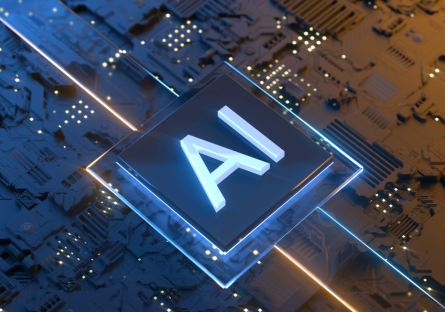
To understand the future of higher education through the lens of AI, we sought insights from six industry experts, ranging from education leaders to technology professionals. Their perspectives, from embracing and incorporating AI in education to detecting AI usage in higher education, provide a comprehensive view of how AI will revolutionize higher education.
- Embracing and Incorporating AI in Education
- Making Education Accessible
- Automating and Personalizing Learning Paths
- Simplifying the Curriculum with Nano-Learning
- Including Predictive Analytics
- Detecting AI Usage
Embracing and Incorporating AI in Education
As an educator, it makes no difference whether you are for or against the use of AI in education. The simple fact is, it will be used by students and there is nothing we can do to stop it.
So, instead of trying to police it, we should embrace it and add it to our curriculum. We should teach the students how to use it correctly and as a tool. This is what AI has been built for, so we should be showing our students how to properly use it in their work. This will ensure they don't misuse it, both for their education and once they are out in the workforce.
We should build assignments where they incorporate AI and build off what it has created. Have them see what the limitations are and report on it, so they can know exactly what these systems can and cannot do. Being an educator is about adapting to the world we live in today, and that involves AI programs.
Mark Smith, Program Chair, University of Advancing Technology
Making Education Accessible
AI will play a significant role in the future of higher education by helping make education more accessible and personalized for students. This, in turn, will allow more students the opportunity to attend a higher education institution.
In the early to mid-2000s, if you wanted to get assistance studying for the SAT, you would need to purchase an expensive prep course or pay for a tutoring class. As technology has improved, the costs and availability of these study materials have also improved.
We can utilize AI to create multiple answer explanations for our practice questions. Student 1 may not understand the first answer explanation, but they may understand our second answer explanation better.
This is just one example of how AI can help the study process. The possibilities are endless.
Dave Evangelisti, Founder, Test-Guide
Automating and Personalizing Learning Paths
AI can play a key role in the future of higher education by enabling the creation of automated and personalized learning paths. Machine-learning algorithms can leverage data from students' profiles, assessments, and interactions to tailor the content, format, and feedback of the learning materials to each individual's needs and preferences.
These AI-powered learning paths have been shown to improve academic outcomes when compared to traditional MOOCs.
Esteban Pardo, Director, Nuwiz
Simplifying the Curriculum with Nano-Learning
AI tools enable EdTech teams to break down their curriculum into easy-to-understand, bite-sized modules that make learning a breeze for students.
Also known as nano-learning, this approach promotes rapid skill development and makes it easier for students to access quick information that is easy to comprehend. It also addresses the problem of shorter attention spans and uses only a few minutes or seconds to pass on valuable information.
AI tools help break down entire syllabi into these retainable nano-modules. This enables higher education experts, teachers, and EdTech developers to create and pass on high-value insights easily.
Ariav Cohen, VP of Marketing and Sales, Proprep
Including Predictive Analytics
Predictive analytics is one of the primary applications of AI in higher education, according to a recent systematic review of AI usage in higher ed.
A total of 21 studies used predictive analytics for trend predictions; nine focused on student academic levels, while another predicted college dropout rates. Other applications of AI technology in higher ed include automated grading, student support, and recruitment—though, while AI may promise much, its promise should not obscure human biases that remain embedded within this technology.
John Willis, Software Engineer, Moo Soft
Detecting AI Usage
One of the key features of AI in higher education will actually detect the use of AI in higher education.
There has been a big trend of students trying to use AI through tools such as ChatGPT to make their essay writing a lot easier. While some are caught, some can still slip through the net. So, a big part of a trend in the education system will be to build an AI system that can successfully discover where ChatGPT has been used.
There have been some that have come out, but most aren't 100% accurate. So, it is difficult to be certain of the outcome, and educators are desperately looking for a foolproof method to make sure they are getting genuine essays, and not questioning people who are completely innocent.
ChatGPT has created a bit of paranoia in people, seeing AI writing where it isn't. So, having something that helps with that will make everyone feel a lot better about what they are looking at, and remove the need for distrust in someone's work.
Bobby Lawson, Technology Editor/Publisher, Earth Web
To further promote the expansion of AI programs and workforce development across the nation, MCCCD, in collaboration with Intel and GPEC, is hosting the first-of-its-kind Artificial Intelligence Teaching and Learning Summit. This event will shine a spotlight on Chandler-Gilbert Community College's and Estrella-Mountain Community College's AI programs, showcasing their innovative approaches to AI education.
Featured creates community-driven content featuring expert insights. Sign up at featured.com to answer questions and get published.